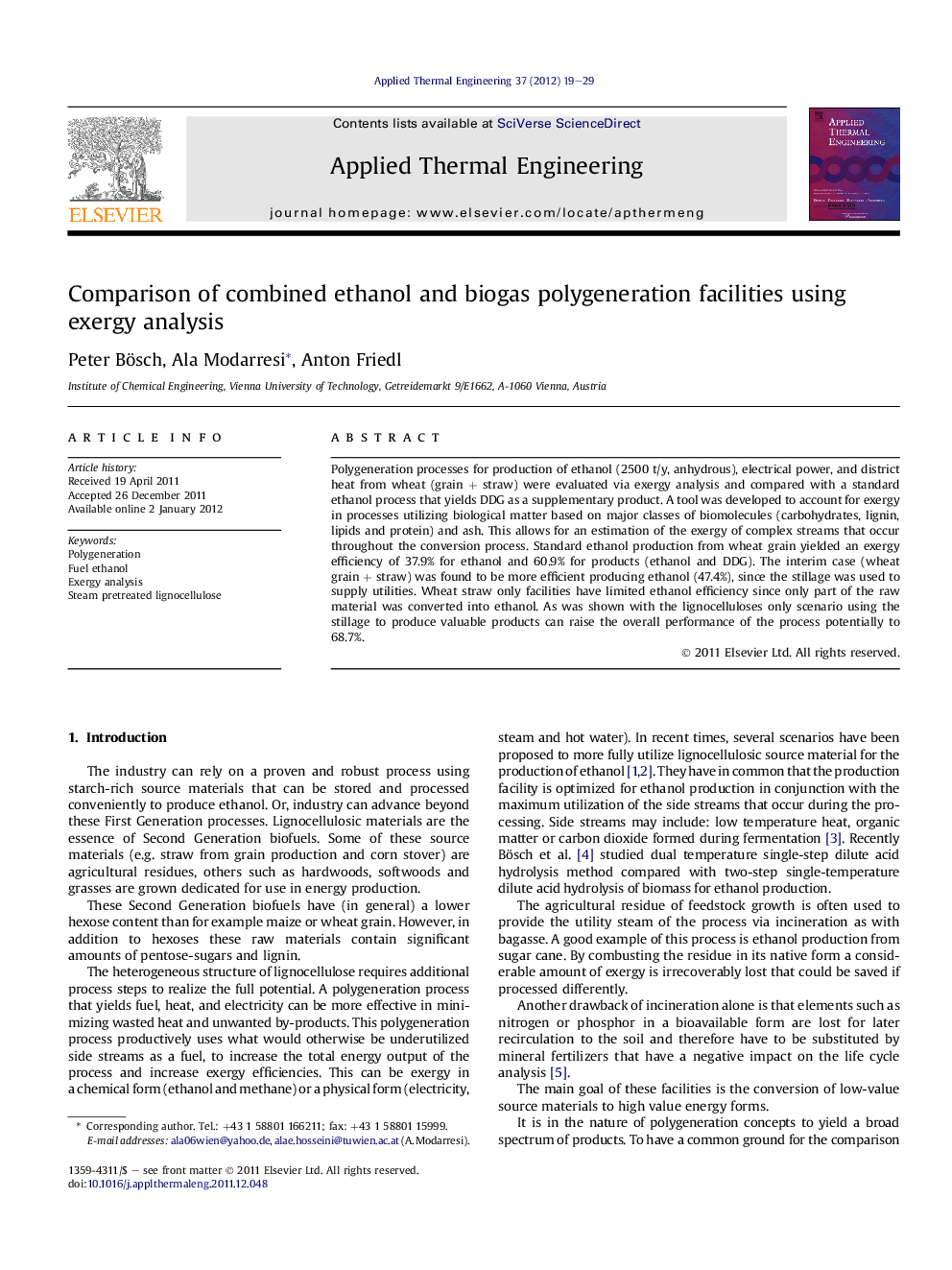| Article ID | Journal | Published Year | Pages | File Type |
|---|---|---|---|---|
| 647406 | Applied Thermal Engineering | 2012 | 11 Pages |
Polygeneration processes for production of ethanol (2500 t/y, anhydrous), electrical power, and district heat from wheat (grain + straw) were evaluated via exergy analysis and compared with a standard ethanol process that yields DDG as a supplementary product. A tool was developed to account for exergy in processes utilizing biological matter based on major classes of biomolecules (carbohydrates, lignin, lipids and protein) and ash. This allows for an estimation of the exergy of complex streams that occur throughout the conversion process. Standard ethanol production from wheat grain yielded an exergy efficiency of 37.9% for ethanol and 60.9% for products (ethanol and DDG). The interim case (wheat grain + straw) was found to be more efficient producing ethanol (47.4%), since the stillage was used to supply utilities. Wheat straw only facilities have limited ethanol efficiency since only part of the raw material was converted into ethanol. As was shown with the lignocelluloses only scenario using the stillage to produce valuable products can raise the overall performance of the process potentially to 68.7%.
► The exergy analysis of five scenarios yielded important insight into this processes. ► The potential of the process lies in the utilization of lignocellulosic substrates. ► Power generation is a viable option to increase the economy of the process. ► Exergy analysis was found to be a very valuable tool for process evaluation.
